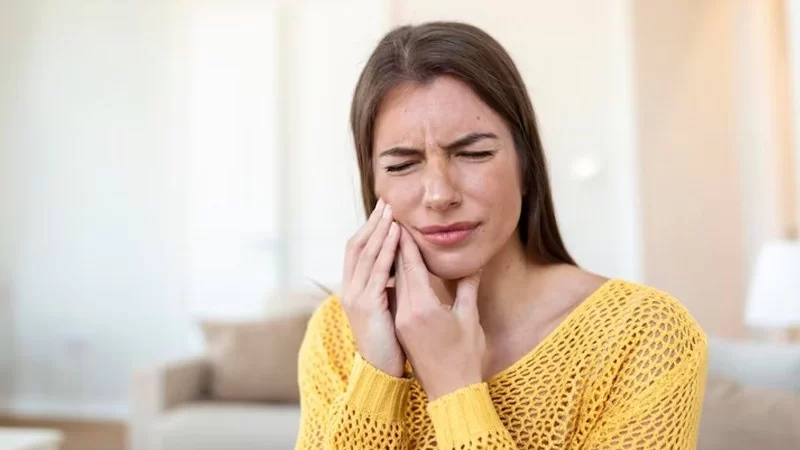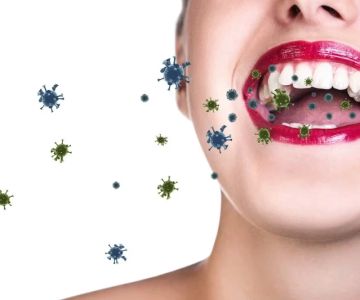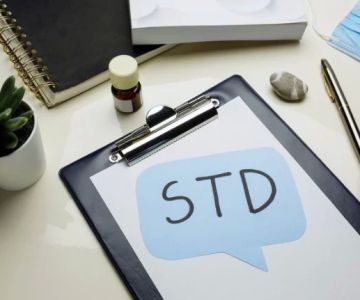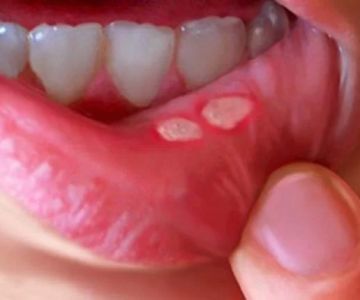
1. What Does “Can You Get a Disease from Oral?” Really Mean?
This question has shown up thousands of times on forums like Yahoo Answers, Reddit, and Quora—especially in the United States where open discussions around sexual health are still growing. So let’s answer it clearly: yes, you can get a disease from oral sex. While it's less risky than some other forms of sexual activity, it is not risk-free. Understanding what those risks are and how they can affect your health is essential for making informed choices.
The term “oral” typically refers to oral-genital contact, and depending on the health status of both partners, disease transmission can happen in either direction—mouth to genitals or vice versa.
2. Common Diseases That Can Be Transmitted Through Oral Contact
2.1 Herpes Simplex Virus (HSV-1 and HSV-2)
Herpes is among the most frequently transmitted infections via oral sex. Oral herpes (usually HSV-1) can spread to the genital area, and vice versa. Even when no visible sores are present, viral shedding can still occur, meaning it’s possible to pass it unknowingly.
2.2 Human Papillomavirus (HPV)
HPV is extremely common and can be transmitted through oral sex. Certain strains of HPV are linked to oral and throat cancers. In fact, recent CDC data shows a rise in HPV-related oropharyngeal cancer among middle-aged men in the U.S. Vaccination helps, but not everyone is vaccinated.
2.3 Gonorrhea and Chlamydia
These bacterial infections can infect the throat and are often asymptomatic. Gonorrhea in the throat may feel like a mild sore throat or show no symptoms at all. Left untreated, it can be transmitted back and forth between partners.
2.4 Syphilis
Syphilis causes small, often painless sores (chancres) that can appear in the mouth or on the genitals. These sores are highly infectious. Even kissing can pose a risk if a sore is present in the oral cavity.
2.5 Hepatitis A, B, and C
Though less common than the others, certain strains of hepatitis can be passed through oral-anal contact or contaminated body fluids. In the U.S., there have been local outbreaks of hepatitis A linked to oral sex among unvaccinated individuals.
2.6 HIV (Though Rare Through Oral)
While the risk of HIV transmission through oral sex is significantly lower than vaginal or anal sex, it is not zero. Open wounds, bleeding gums, or sores increase that risk. According to the CDC, the presence of another STD increases HIV susceptibility.
3. Why the Confusion Exists: Searching for Truth on Yahoo and Other Forums
People often turn to search engines or forums like Yahoo Answers in search of quick, anonymous advice. Many users believe that oral sex is “safe sex” and that protection is unnecessary. Others spread misinformation based on myths, not science. One popular Yahoo question from 2020 asked, “Can I get an STD from just a quick oral encounter?” The top-rated answer at the time claimed “Not really,”—but this is dangerously incorrect.
In the digital age, it’s critical to rely on verified health sources. While forums are great for community support, your health decisions should be grounded in medically reviewed information.
4. Real People, Real Cases: When the Warning Signs Were Ignored
4.1 Olivia’s Oral HPV Diagnosis
Olivia, 35, from Phoenix, thought she was being cautious by avoiding unprotected intercourse. But after experiencing throat pain that wouldn’t go away, she saw an ENT and was shocked to learn she had oral HPV. “I had no idea it could lead to cancer,” she says. Now an advocate for vaccination and education, she speaks to college groups across Arizona.
4.2 James’ Experience with Gonorrhea of the Throat
James, a 22-year-old student in Michigan, went for an STD screening on a dare. His test came back positive for throat gonorrhea. He had no symptoms and was surprised since he believed oral sex “didn’t count” as real sex. His story went viral on TikTok, opening up conversations among young men about hidden risks.
5. Early Signs You Shouldn’t Ignore
5.1 Persistent Sore Throat or Mouth Sores
If you experience a sore throat that lasts longer than a week without other cold symptoms—or sores in your mouth that won’t heal—it’s worth seeing a doctor. These can be signs of gonorrhea, syphilis, or HPV.
5.2 Swollen Glands or Fever
Swollen lymph nodes in the neck and unexplained fever could indicate an oral infection. Many oral STDs begin with symptoms similar to a common viral illness but linger longer or worsen over time.
5.3 Bad Breath or Metallic Taste
Some people report a constant bad taste or halitosis when infected with oral STDs. Though not always linked to STDs, it’s a sign that your oral health needs a deeper evaluation.
6. Prevention Strategies That Actually Work
6.1 Use Barriers Every Time
Dental dams and flavored condoms are designed for oral use and reduce the risk of infection. They’re widely available in pharmacies and online. Consistent use is the most effective non-medical preventative measure.
6.2 Stay Up-to-Date with Vaccines
The HPV vaccine is highly recommended for teens and young adults in the U.S. It’s now approved for use up to age 45. Hepatitis vaccines are also part of standard immunization schedules but are often skipped in adult years. Check your records with your healthcare provider.
6.3 Regular Testing and Honest Conversations
Routine testing and open communication with sexual partners can help reduce risk and encourage responsibility. Many infections are asymptomatic, so testing is the only way to be sure of your status.
7. When to Seek Medical Attention
7.1 You Notice Persistent or Unusual Symptoms
If you experience unusual oral symptoms, fatigue, fever, or swollen lymph nodes after an encounter, don’t wait. Many American urgent care centers offer confidential STD testing without appointments.
7.2 Your Partner Tests Positive
If someone you’ve had oral contact with tests positive for any STD, you should get tested—even if you feel fine. Early treatment prevents long-term complications and stops the spread to others.
7.3 You’re Unsure About a Recent Encounter
Better safe than sorry. If you’re questioning whether an experience might have put you at risk, a quick consultation with a sexual health professional can offer peace of mind and guidance.
8. Staying Informed with Reliable Resources
Sexual health is a vital part of your overall wellness. In today’s information-heavy world, misinformation can be just as dangerous as disease. For updated, expert-reviewed content on oral health and disease prevention, explore Dentistry Toothtruth. From personalized dental care recommendations to safe sex education tools, we help you stay protected, informed, and empowered.







 Westgate Dental Arts3.0 (2 review)
Westgate Dental Arts3.0 (2 review) Coventry Family Dental4.0 (247 review)
Coventry Family Dental4.0 (247 review) Familia Dental3.0 (1028 review)
Familia Dental3.0 (1028 review) Dr. Daniel S. Fife, DDS4.0 (31 review)
Dr. Daniel S. Fife, DDS4.0 (31 review) Dentistry At Suburban Square: Michael I. Wollock, DMD4.0 (1228 review)
Dentistry At Suburban Square: Michael I. Wollock, DMD4.0 (1228 review) Comfort Care Dental4.0 (1156 review)
Comfort Care Dental4.0 (1156 review) The Importance of Oral Health Education During Pregnancy for a Healthy Pregnancy
The Importance of Oral Health Education During Pregnancy for a Healthy Pregnancy Why Skipping Dental Checkups Can Lead to Bigger Oral Health Problems
Why Skipping Dental Checkups Can Lead to Bigger Oral Health Problems Best Tips for Brushing Your Teeth Properly for Healthy Gums: Essential Techniques for Oral Health
Best Tips for Brushing Your Teeth Properly for Healthy Gums: Essential Techniques for Oral Health Advantages of Porcelain Dental Restorations
Advantages of Porcelain Dental Restorations How Can Diabetes Cause Tooth and Gum Problems? Preventing and Managing Oral Health Issues
How Can Diabetes Cause Tooth and Gum Problems? Preventing and Managing Oral Health Issues Healthy Habits for Promoting Good Oral Health and Hygiene: Tips for a Healthy Smile
Healthy Habits for Promoting Good Oral Health and Hygiene: Tips for a Healthy Smile